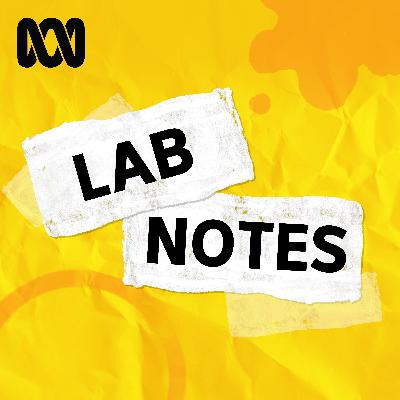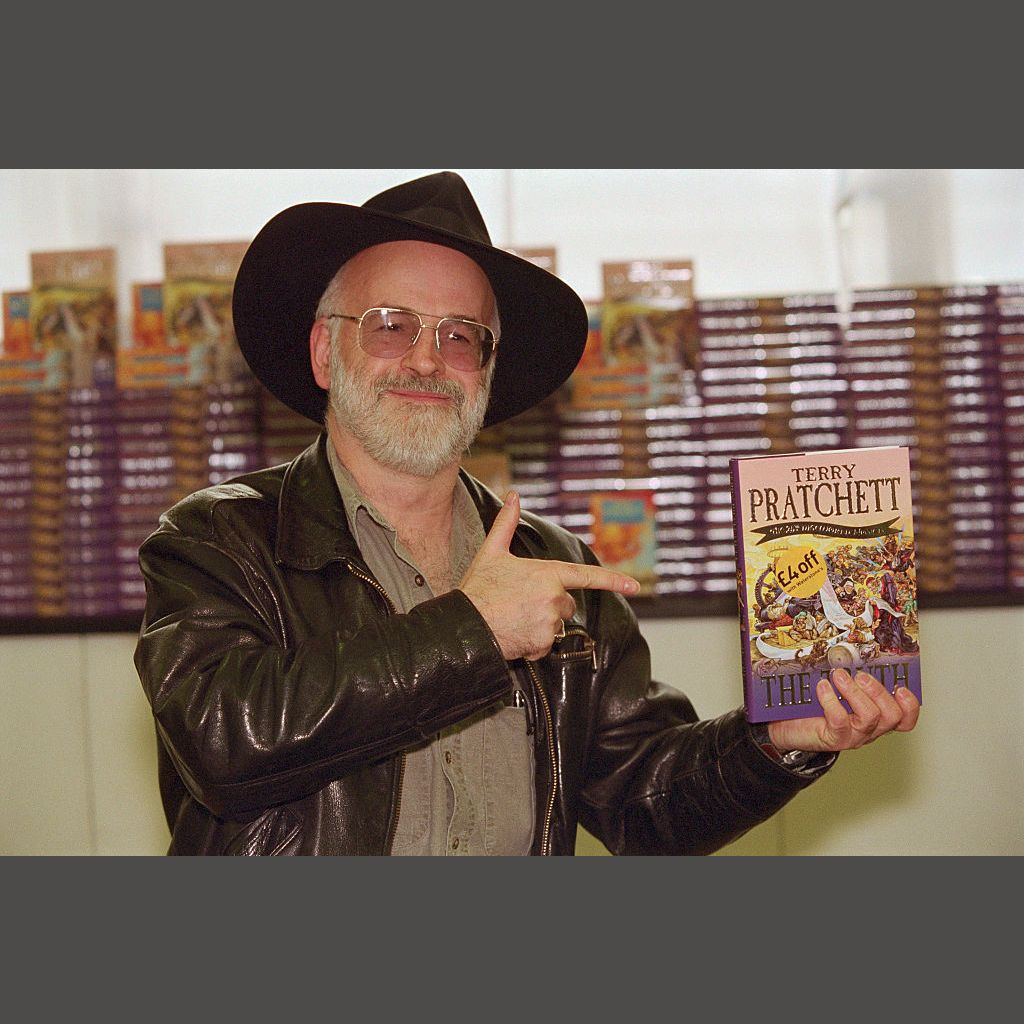Discover The Science Show
The Science Show

The Science Show
Author: ABC
Subscribed: 8,729Played: 179,321Subscribe
Share
© Copyright 2026, Australian Broadcasting Corporation. All right reserved.
Description
The Science Show gives Australians unique insights into the latest scientific research and debate, from the physics of cricket to prime ministerial biorhythms.
500 Episodes
Reverse
How did life begin? It may not have been on Earth, with asteroids carrying a range of organic molecules
Fire, insects and disease all pose a threat to Australia's forests but scientists are now seeing a rise in natural tree deaths right across the country. New research links this background mortality to higher average temperatures.So what do these higher temperatures mean for our forests and the future of Australia's ecosystems? You can binge more episodes of the Lab Notes podcast with science editor and presenter Jonathan Webb on the ABC Listen app (Australia). You'll find episodes on animal behaviour, human health, space exploration and so much more.Get in touch with us: labnotes@abc.net.auFeaturing: Professor Belinda Medlyn, plant ecologist from Western Sydney UniversityExtra information: Pervasive increase in tree mortality across the Australian continentRising tree death rates in all types of Australian forest tied to climate changeThis episode of Lab Notes was produced on the lands of the Gadigal and Menang Noongar people.
Natasha Hurley-Walker considers what might explain a mysterious stellar object which shines every 18 minutes.
A faint orange hand stencil on the wall of a cave in Indonesia just became the oldest art known to science. The art, made by splattering ochre over a hand, had been painted over by subsequent generations and was only preserved because moisture combined with the limestone of the cave to form a protective layer on top. The finding strengthens the picture that humans migrated via Borneo, Sulawesi and Papua to reach Australia at least 65,000 years ago. You can binge more episodes of the Lab Notes podcast with science editor and presenter Jonathan Webb on the ABC Listen app (Australia). You'll find episodes on animal behaviour, human health, space exploration and so much more.Get in touch with us: labnotes@abc.net.auFeaturing: Jacinta Bowler, ABC science reporter Extra information: Hand stencils discovered in an Indonesian cave are oldest-known rock artRock art from at least 67,800 years ago in SulawesiThis episode of Lab Notes was produced on the lands of the Gadigal and Menang Noongar people.
In the Swedish city of Kiruna, an entire community is being relocated to accommodate the expansion of the world's largest underground iron ore mine.
Australia's summer UV levels are high enough to cause sunburn in as little as 11 minutes.Yet the summer sun in the Northern Hemisphere rarely feels that full on.So why does our sunlight have that extra "bite"?Spoiler: it's not the hole in the ozone layer.You can binge more episodes of the Lab Notes podcast with science journalist and presenter Belinda Smith on the ABC Listen app (Australia). You'll find episodes on animal behaviour, human health, space exploration and so much more.Get in touch with us: labnotes@abc.net.auFeaturing: David Whiteman, medical epidemiologist and Cancer Control group leader at QIMR BerghoferMore information:Why is UV so high during Australia's summer? The ozone hole is not to blameCancer Council — UV RadiationWorld Health Organization — Radiation: The ultraviolet (UV) indexCSIRO — The future of the ozone holeThis episode of Lab Notes was produced on the lands of the Wurundjeri and Menang Noongar people.
She became an expert on fleas and despite no formal education received honorary doctorates from both Oxford and Cambridge was elected a fellow of The Royal Society.
The next time you pick up a bag of spuds from the supermarket or fill up the car with petrol, you can thank the Treaty of the Metre for the metric system that underpins daily life. The treaty was signed exactly 150 years ago, when delegates from 17 countries gathered in Paris to establish a new and standardised way of measuring the world around us. But the metre's inception predates the treaty that bears its name by nearly 100 years. So how did it come about, and how has its definition changed over the centuries? This episode was first broadcast in May 2025. You can binge more episodes of the Lab Notes podcast with science journalist and presenter Belinda Smith on the ABC Listen app (Australia). You'll find episodes on animal behaviour, human health, space exploration and so much more. Get in touch with us: labnotes@abc.net.auFeaturing:Bruce Warrington, CEO and chief metrologist of the National Measurement Institute More information:The metre originated in the French Revolution, but its definition has changed many times sinceThis episode of Lab Notes was produced on the lands of the Wurundjeri and Menang Noongar people.
She could only read and write from age 10. She reared children and had a first unsupportive husband. But Mary Somerville was able to correct the work of Isaac Newton, help discover Neptune, and write a science book which became a university text.
Every now and again, dozens or even hundreds of perfectly healthy looking whales strand themselves on a beach. And despite people's best efforts, many — if not all of them — will die. So why do whales strand themselves, and why do they seem to do it at the same locations? This episode was first broadcast in August 2025. You can binge more episodes of the Lab Notes podcast with science journalist and presenter Belinda Smith on the ABC Listen app (Australia). You'll find episodes on animal behaviour, human health, space exploration and so much more. Get in touch with us: labnotes@abc.net.auFeaturing:Kate Sprogis, marine mammal ecologist at University of Western Australia More information: Cause of mass pilot whale stranding at Cheynes Beach still no clearer one year onThis episode of Lab Notes was produced on the lands of the Wurundjeri and Menang Noongar people.
Norman Swan, Fiona Stanley and Lorin Clarke describe their involvement with Robyn Williams and The Science Show with MC Richard Glover at a party celebrating 50 years of broadcasting.
It's impossible to escape microplastics. They're in our food and water, and the air around us is teeming with them. So considering they're all around us, how can we minimise our exposure to tiny plastic fragments without resorting to living in a cave? This episode was first broadcast in August 2025. You can binge more episodes of the Lab Notes podcast with science journalist and presenter Belinda Smith on the ABC Listen app (Australia). You'll find episodes on animal behaviour, human health, space exploration and so much more. Get in touch with us: labnotes@abc.net.auFeaturing:Cassandra Rauert, microplastics researcher at the University of Queensland More information:Microplastics are in our food, water and air. How can we minimise our exposure to them?Human exposure to PM10 microplastics in indoor airAverage household dishwasher releases 33 million nano and microplastic particles per year, research findsLaundry is a top source of microplastic pollution — but you can clean your clothes more sustainablyThis episode of Lab Notes was produced on the lands of the Wurundjeri and Menang Noongar people.
She battled rigidities of 18th century Europe. But with writer and philosopher Voltaire, Émilie du Châtelet led the Enlightenment.
Australia's known for having some of the world's toughest sunscreen standards, but in June, that reputation was rocked.Independent testing of 20 sunscreens found 16 did not meet their advertised SPF50 rating, including three children's sunscreens and three sold by the Cancer Council.So how are sunscreens tested, and what can we learn from these recent SPF revelations?This episode was first broadcast in September 2025.You can binge more episodes of the Lab Notes podcast with science journalist and presenter Belinda Smith on the ABC Listen app (Australia). You'll find episodes on animal behaviour, human health, space exploration and so much more. Get in touch with us: labnotes@abc.net.auFeaturing:John Staton, scientific director at SciPharmMore information:What is SPF, and how is sunscreen's sun protection factor tested in the laboratory?Choice report finds popular Australian sunscreens fail to meet SPF claims on labelThis episode of Lab Notes was produced on the lands of the Wurundjeri and Menang Noongar people.
Retiring Vice Chancellor of the University of South Australia David Lloyd awarded Pratchett two honorary degrees. In exchange, the author honoured the university with a special scholarship – to be offered every year forever. This week David Lloyd explains his enthusiasms for the Discworld author in front of a packed audience at the Hawke Centre in Adelaide.
A huge cold blob of air above Antarctica and bushfires spreading along ridgelines don't appear to have anything in common, yet the strange behaviour of these natural phenomena — and many others — can be understood and explained by mathematics. You can binge more episodes of the Lab Notes podcast with science journalist and presenter Belinda Smith on the ABC Listen app (Australia). You'll find episodes on animal behaviour, human health, space exploration and so much more.Get in touch with us: labnotes@abc.net.auFeaturing:Chantelle Blachut, mathematician at UNSW Canberra
In her book Prove It! Elizabeth Finkel presents the evidence showing no link between pain relief drugs and autism
Step into the supermarket and there's plastic around just about everything, even mangoes — and not all that packaging will be properly disposed of.So with around 20 million tonnes of plastic polluting the environment each year, not to mention the potential health effects of microplastics, is there a better, more environmentally friendly alternative?You can binge more episodes of the Lab Notes podcast with science journalist and presenter Belinda Smith on the ABC Listen app (Australia). You'll find episodes on animal behaviour, human health, space exploration and so much more.Get in touch with us: labnotes@abc.net.auFeaturing:Edward Attenborough, chemical engineer and chemist at Monash UniversityMore information:Bacterial species-structure-property relationships of polyhydroxyalkanoate biopolymers produced on simple sugars for thin film applicationsThis episode of Lab Notes was produced on the lands of the Wurundjeri and Taungurung people.
The International Astronautical Congress held in Sydney showed how space science is vital to our modern world.
Astrophotographers have had another great month, with the aurora australis lighting up night skies as far north as southern Queensland.And while you might've heard that the best of this bunch of auroras is behind us, don't put your camera away just yet. There's good reason to think the southern lights will illuminate the sky well into 2026.It all depends on what the Sun shoots in our direction … and we might find ourselves in the firing line more often over the next few months.You can binge more episodes of the Lab Notes podcast with science journalist and presenter Belinda Smith on the ABC Listen app (Australia). You'll find episodes on animal behaviour, human health, space exploration and so much more.Get in touch with us: labnotes@abc.net.auFeaturing:Brett Carter, space weather researcher at RMIT UniversityMore information:The Sun Reversed Its Decades-long Weakening Trend in 2008When the southern lights are seen further northThis episode of Lab Notes was produced on the lands of the Wurundjeri and Taungurung people.











Doesn't download. Someone needs to check the settings.
🖐️
What gives? Eight mins and then cut off mid sentence. This is the second pod that has been cut off half way.